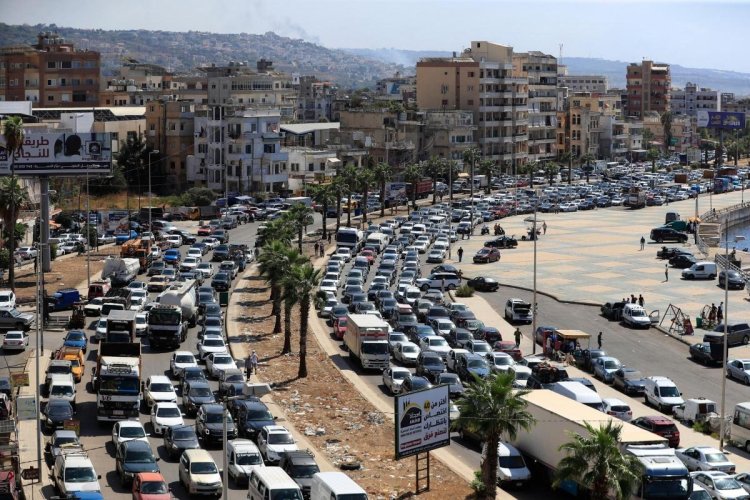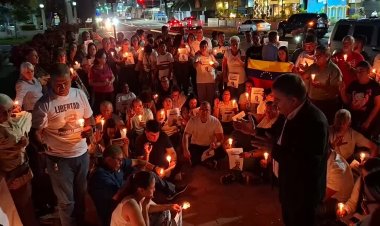Thousands flee southern Lebanon amid Israeli strikes

Thousands of Lebanese citizens have fled from southern parts of the country, with highways and roads out of the port city of Sidon jammed with cars.
Residents evacuated and headed towards the capital of Beirut in the biggest exodus since 2006.
Data from fire-tracking satellites used by the United States showed the wide range of Israeli airstrikes that targeted southern Lebanon.
Nasa’s Fire Information for Resource Management System typically is used by experts to track wildfires across rural areas of the US. However, they also can be used to track the flashes and burning that follow airstrikes.
Israeli strikes on Lebanon have killed more than 490 people including more than 90 women and children, Lebanese authorities have said, in the deadliest barrage since the Israel-Hezbollah war.
The Israeli military warned residents in southern and eastern Lebanon to evacuate ahead of its widening air campaign against Hezbollah.
Thousands of Lebanese fled the south, and the main highway out of the southern port city of Sidon was jammed with cars heading toward Beirut in the biggest exodus since 2006.
Lebanon’s health ministry said the strikes killed 492 people, including 35 children and 58 women, and wounded 1,645 people — a staggering one-day toll for a country still reeling from a deadly attack on communication devices last week.
The death toll far surpassed that of Beirut’s devastating port explosion in 2020, when hundreds of tons of ammonium nitrate stored in a warehouse detonated, killing at least 218 people and wounding more than 6,000.
Lebanese Health Minister Firass Abiad said the earlier strikes hit hospitals, medical centers and ambulances. The government ordered schools and universities to close across most of the country and began preparing shelters for the displaced.
Some strikes hit residential areas in the south and the eastern Bekaa Valley. One hit a wooded area as far away as Byblos, more than130 kilometers from the border north of Beirut.















